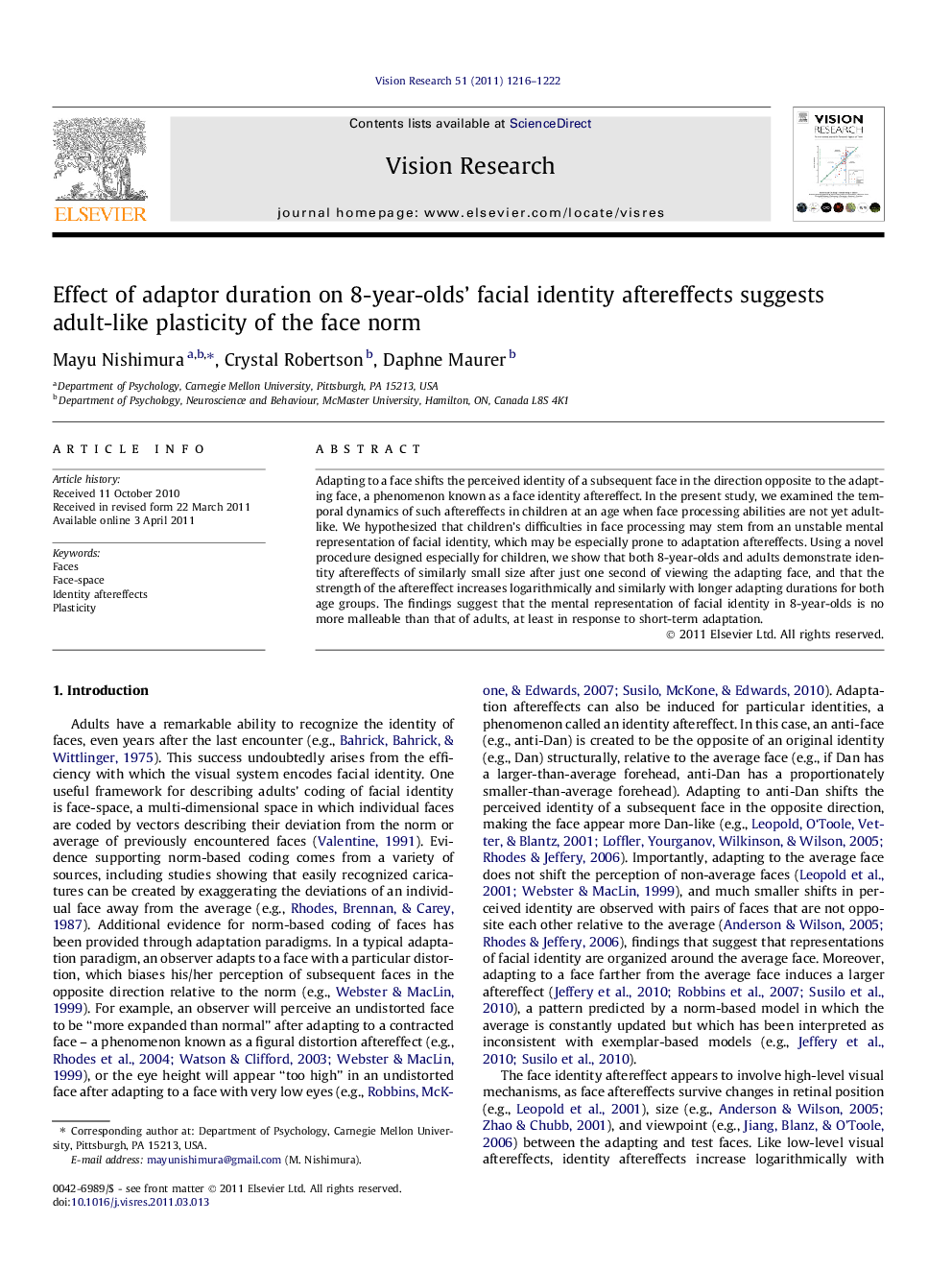| Article ID | Journal | Published Year | Pages | File Type |
|---|---|---|---|---|
| 6203785 | Vision Research | 2011 | 7 Pages |
Adapting to a face shifts the perceived identity of a subsequent face in the direction opposite to the adapting face, a phenomenon known as a face identity aftereffect. In the present study, we examined the temporal dynamics of such aftereffects in children at an age when face processing abilities are not yet adult-like. We hypothesized that children's difficulties in face processing may stem from an unstable mental representation of facial identity, which may be especially prone to adaptation aftereffects. Using a novel procedure designed especially for children, we show that both 8-year-olds and adults demonstrate identity aftereffects of similarly small size after just one second of viewing the adapting face, and that the strength of the aftereffect increases logarithmically and similarly with longer adapting durations for both age groups. The findings suggest that the mental representation of facial identity in 8-year-olds is no more malleable than that of adults, at least in response to short-term adaptation.
⺠Examined temporal dynamics of face identity aftereffects in 8-year-olds. ⺠Children and adults showed significant aftereffects after 1 second of adaptation. ⺠Children, like adults, showed logarithmically stronger aftereffects with longer adapting duration.
